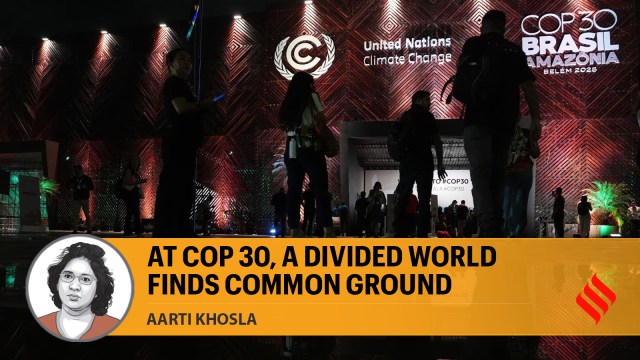
COP 30 took place at a time when the challenges of climate impacts, war and conflict, rising debt, and tariffs have upended geopolitics. In the year of the second US withdrawal from the Paris Pact, 194 countries came together to send a message that the rest of the world is moving ahead with the understanding that cooperating on climate also brings economic protection. Demonstrating a new multilateralism that reflects the era of multipolar politics is the biggest win of the two-week-long meeting in Belem, Brazil.
Important decisions at the COP include a commitment to triple adaptation finance by 2035, the launch of an “implementation accelerator” to maintain climate action at a sufficient level to keep the 1.5-degree C temperature goal in sight, and a new mechanism to enhance global cooperation on a just transition. There is a mention of trade in the cover decision to make sure that climate goals do not encourage protective measures. COP 30 President André Corrêa do Lago announced the creation of two roadmaps —one on halting and reversing deforestation and another on transitioning away from fossil fuels in a just, orderly, and equitable manner.
Brazil, as the COP’s president, carried a big responsibility — supporting the Global South’s realities and their strategic imperative. The Belem meeting saw alignment between the hosts Brazil, India and China on key issues of trade and energy transition.
Adaptation was embedded as a core issue in the negotiations. Rich countries were asked to triple adaptation finance as part of the $300 billion New Collective Quantified Goal by 2035. Although the money needed is far beyond these numbers, this was still a win because scaling up funds for adapting to climate change impacts is a concern for vulnerable countries.
The transition from fossil fuels must respect national circumstances, ensure equity, and secure social justice. Take India’s example. Despite its developmental aspirations and dependence on conventional energy sources, India has shown that making financing affordable, building system-level infrastructure, scaling up innovations in storage technologies and demonstrating political will can help transition to a greater share of renewables in the energy mix.
Can this transition be accelerated at the speed needed to avert crossing tipping points, which will unleash more turmoil? The Brazilian concept of mutirão — the guiding spirit of the COP — embodied a simple but powerful idea: People coming together to achieve a common goal through collective effort. Through the two roadmaps, the Brazilian presidency brought both economic and social complexity directly into the negotiations. This happened when multilateralism was under attack. Collective progress is possible when countries recognise both differences and common interests.
Belem showed that all this isn’t easy. Even then, COP 30 delivered solutions suited to the world as it is. There are nuances in the final text, but the process is unmistakably shifting. Countries are collaborating where they can and creating momentum that draws others in. In an era of shifting alliances, that is no small achievement.
The writer is director, Climate Trends